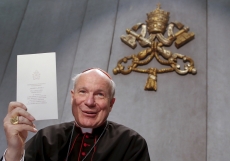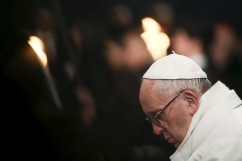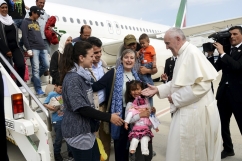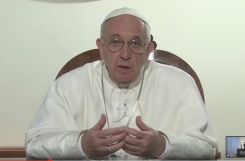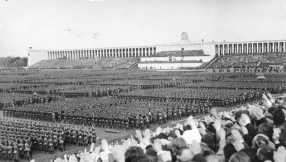It's a very, very sobering comparison.
Pope Francis told a Vatican gathering sponsored by the Congregation for the Clergy, which oversees the training of priests and deacons, to be careful about who they admit to seminaries. Some promising candidates are hiding serious psychological problems, he said.
He spoke of his own experience of teaching Jesuit novices in Argentina. One candidate didn't pass a psychiatric examination. The psychiatrist said to him: "These boys are fine until they have settled, until they feel completely secure. Then the problems start. Father, have you ever asked yourself why there are policemen who are torturers?"
Francis told the conference they should think twice about about admitting young men who were "too confident, rigid and fundamentalist". "There are mentally ill boys who seek strong structures that can protect them," he said, instancing "the police, the army and the clergy".
At one level it's very heartening that this is acknowledged in the Church, and it's very much in tune with what we expect of this particular Pope. He is – and this can't be over-stressed in the face of the Guardian-reading liberals who think he is secretly one of them – theologically and personally conservative. However, he displays a generosity of spirit that lifts him on to an entirely different level from the Catholic culture warriors. It comes as a considerable shock to realise just how unpopular he is with a substantial number of his flock. A contributor to the conservative Rorate Coeli website described his widely praised Amoris Laetitia as "catastrophic". The site condemned his proposals last year to "decentralise" authority in the Church, describing them as an "obvious attack on the authority of the Apostolic See and the unity of the universal Church".
US "Tea Party Catholics", as right-wing Catholic activists have been called, are deeply suspicious of his modernising agenda and regard him as a sell-out. His intervention in Cuba, credited with helping the rapprochement between the island and the US, was regarded with fury by right-wing Florida Catholics. Sites like the Most Holy Family Monastery, which regard all post-Vatican II Popes as frauds, are on the extreme end of this tendency, but there are plenty of conservatives who are deeply unhappy that Francis isn't talking the language of conflict and resistance. They'd like him to be far more definite about homosexuality and abortion, for a start – and in a sign of just how deep these feelings go, the highly respected editor of the Catholic News Service was asked to resign last week because of his criticisms of so-called 'bathroom bills' targeting transgender people.
It's this wing of the Church that would be all in favour of the sort of Catholic fundamentalism Francis critiques. We need more of that, not less, they'd say; enough with the watery liberalism, we need people who'll stand up and fearlessly declare the Church's teaching no matter whether people agree with them or not. To Francis' credit – and it's worth saying that he was talking about an incident several years ago – he is standing firm against that approach. He is aware of the dark side of certainty. Yes, it's the responsibility of priests to teach the historic faith of the Church, but this has to be done humbly, with self-reflection, by people who are committed to the gospel of Jesus rather than those who are using the Church and its structures to meet their own psychological needs.
Francis knows that human motivation is a complicated thing. Of course the Church will support the emotional and psychological needs of its priests and members. But if young men are just seeking "strong structures that will protecct them", their loyalty is to the structure and it becomes a substitute for Christ.
And if anyone thinks evangelical Protestants are immune from such temptations, they should consider recent history, and church leaders who have been seduced by the power and influence of their offices. As the psychiatrist said: "These boys are fine until they have settled, until they feel completely secure. Then the problems start. Father, have you ever asked yourself why there are policemen who are torturers?"
Screening out potential torturers is easier said than done. But it begins with an acknowledgment that the ideal candidate for ministry is not the one who knows all the answers, but the one who's humble enough to live with a lifetime of questions.
Follow Mark Woods on Twitter: @RevMarkWoods










